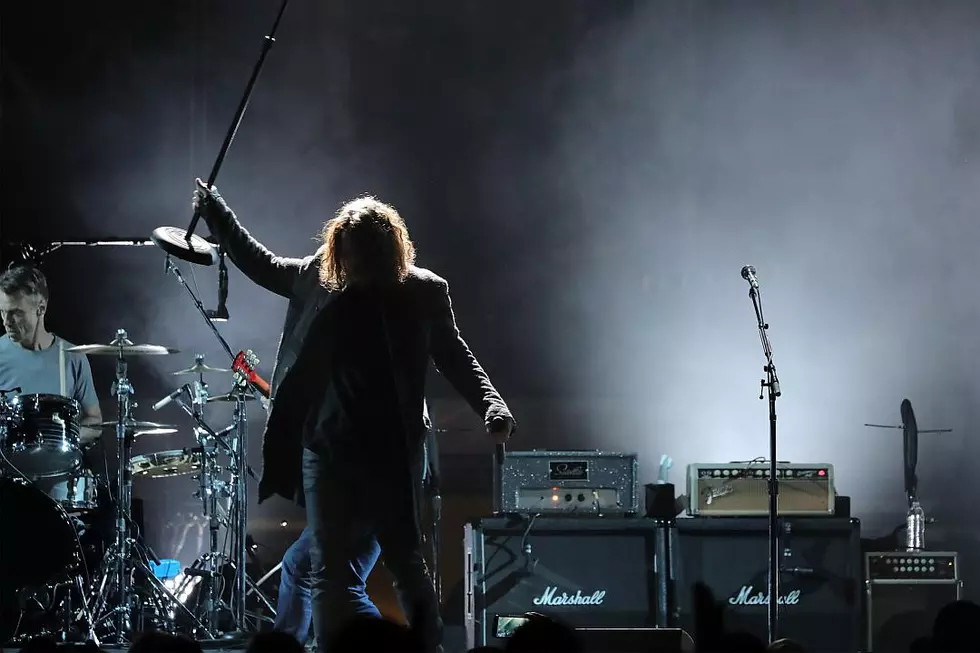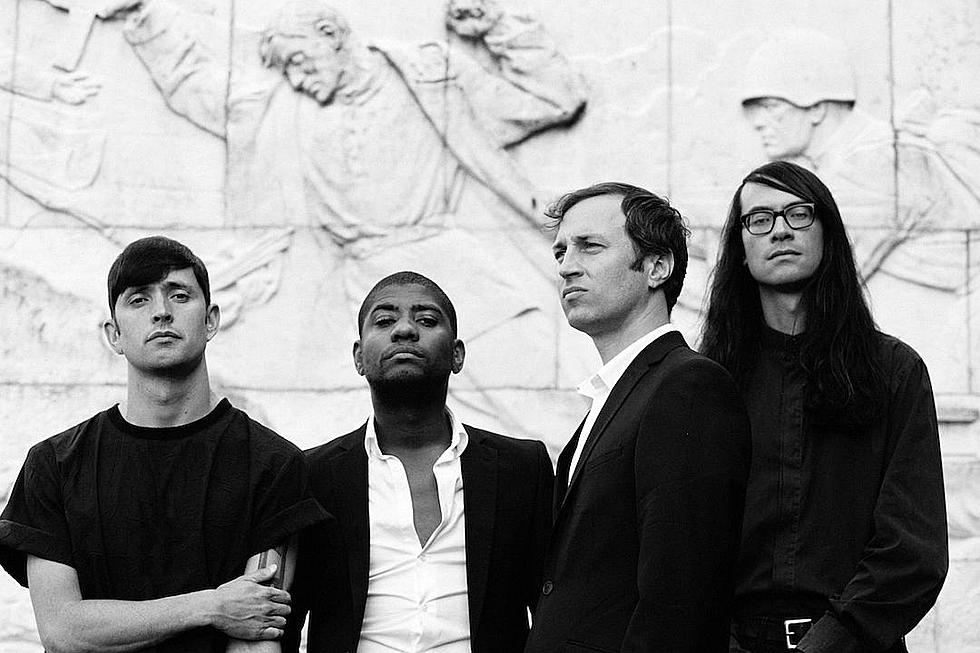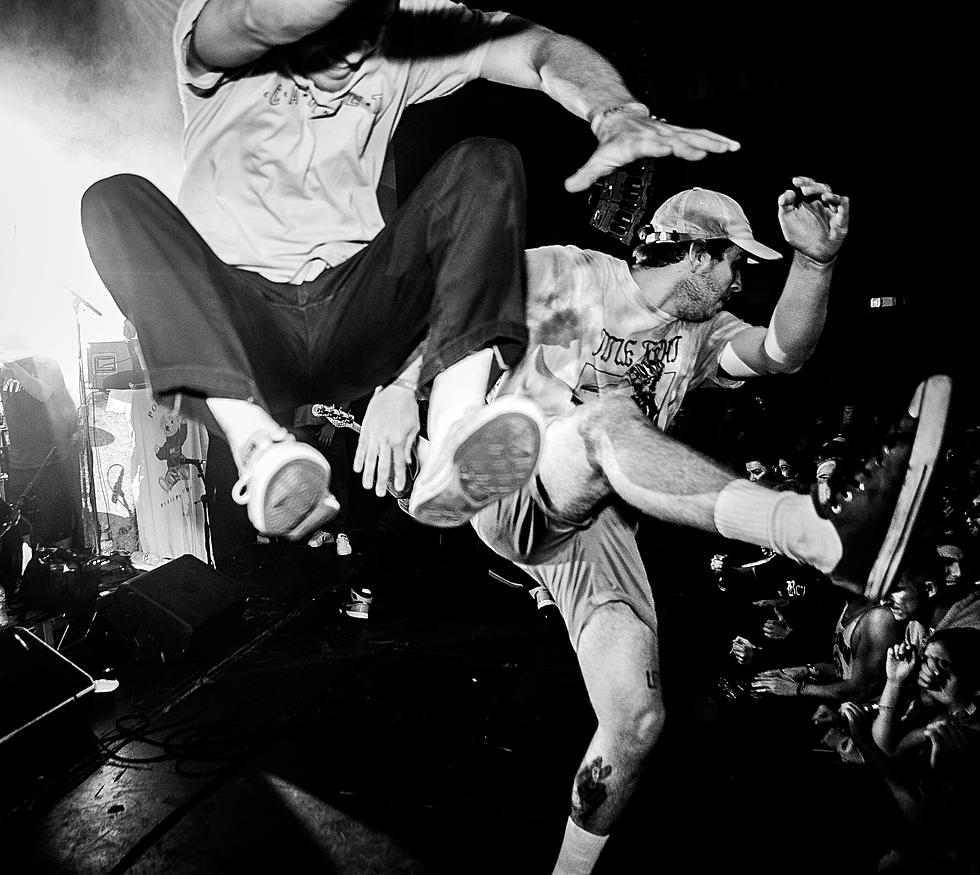
Fell on Black Days: Chris Cornell Waves Goodbye
And just like that, he’s gone.
May 17, 2017: Soundgarden vocalist Chris Cornell is dead at age 52. Of a possible suicide, if preliminary reports are to be believed. Found unresponsive on the bathroom floor of a Detroit hotel room with a “band” around his neck, according to this morning’s New York Times. A heartbreaking end to one of the greatest rock singers and underrated lyricists in the history of forever. A stark reminder that, no matter how high we soar in life, the end can always be lonely and miserable. Even if you have a wife and three kids. Which he did. The word tragedy doesn’t even begin to cut it.
With a band around his neck. That’s a pretty nefarious turn of phrase. If Cornell really did kill himself, the rumor mill will never stop, ever. Was he depressed? Broke? Back on the dope? Was the pressure to preserve Soundgarden’s substantial legacy too much for his fragile psyche to bear? Before those lines of questioning are exhausted, the prevailing tendency will be to force his untimely demise into some bullshit narrative involving the premature deaths of fellow Seattle rock luminaries Kurt Cobain, Layne Staley and Andrew Wood. I personally can’t wait to not read all those articles.
So, let’s skip the ham-fisted analysis and get to the point: A banshee wail has been silenced. A human being who connected so many of us with that which is greater than ourselves has departed this earthly plane. That he may have done it deliberately and in what could have otherwise been a fleeting moment of emotional despair just makes it slightly more awful. Either way, he walked through the exit door. He’s not coming back. All we can do is mourn — for as long as it takes — and spend some serious quality time with what he left us.
When Cornell sang, “Follow me into the desert, as thirsty as you are,” on “Burden in My Hand” from 1996’s Down on the Upside, we were already right behind him. Millions of wide-eyed apostles to the shirtless Christ figure leading us through the new rock landscape. You know the big ones by now: Badmotorfinger, Louder Than Love, Ultramega OK. Then there are the less-celebrated Soundgarden gems like 1987’s “Hunted Down” single, which you should listen to immediately, if not sooner. Early, overlooked bangers like “Heretic,” “Toy Box” and “Cold Bitch” hit just as hard today as they did in the late '80s and early '90s. Meanwhile, Cornell’s contribution to the Singles soundtrack, “Seasons,” remains one of his finest moments. Let’s not forget the Temple of the Dog album. Even his 1999 solo debut, Euphoria Morning, doesn’t get the props it deserves.
Much will be written about Cornell and his legacy in the coming weeks, but none of it — especially this — will ever mean as much as the music itself. Many of my favorite Soundgarden songs are on 1994’s Superunknown: “The Day I Tried to Live.” “4th of July,” “Fell on Black Days” and — yeah — “Like Suicide,” which has held a special place in my blackened heart since the day it came out. (I even bought an overpriced “The Day I Tried to Live” import CD single back in ’96 because it included an acoustic version of “Like Suicide.”) To me, these songs are about the human condition and our many calamities and failings. Kicking against the pricks day in, day out, and occasionally falling on our faces. That hoary old chestnut about picking yourself up and dusting yourself off? Cornell knew what we all know, but are too afraid to admit: If you feel like you’ve hit the dirt too many times, there’s always a way out.
In the end, all attempts to assess what we’ve lost are for naught. Whomever or whatever is in charge of handing out world-beating voices like Cornell’s only has so many to give. Ozzy got one. Robert Plant got one. Freddie Mercury got one. And Chris Cornell got one. The man is gone now, but his voice will haunt us forever. That might sound corny, and it’s obviously cold comfort to his family and friends and bandmates. But for the rest of us? It’s all we’ve got.
More From CLRVYNT









